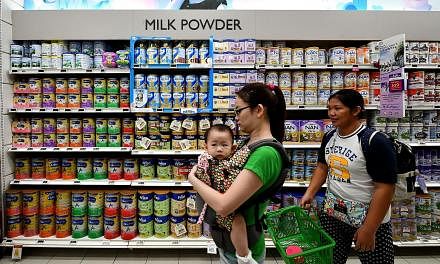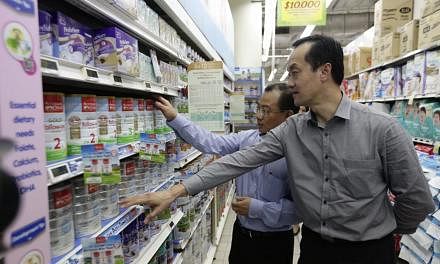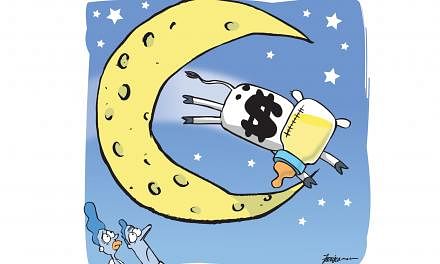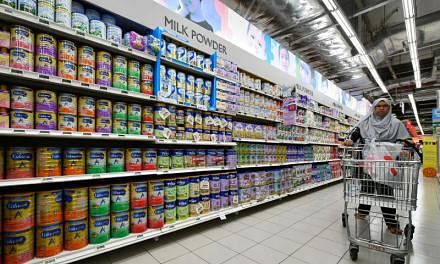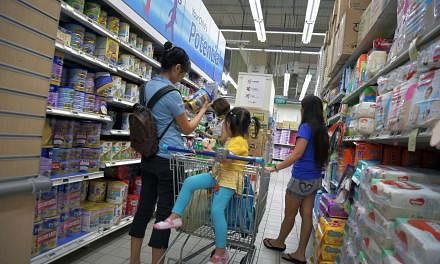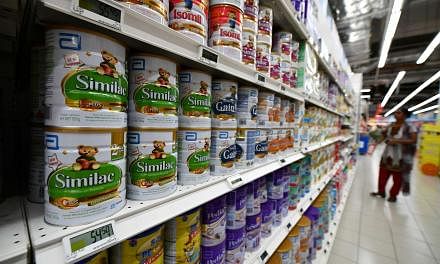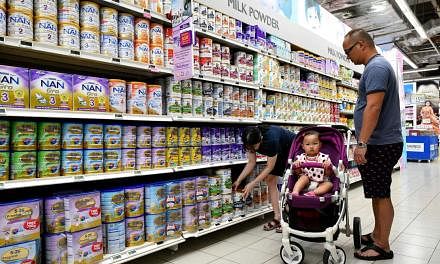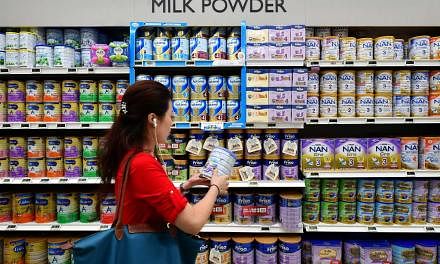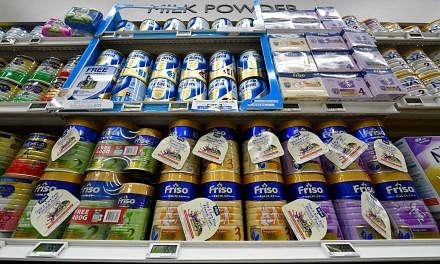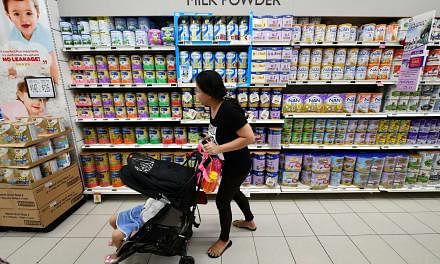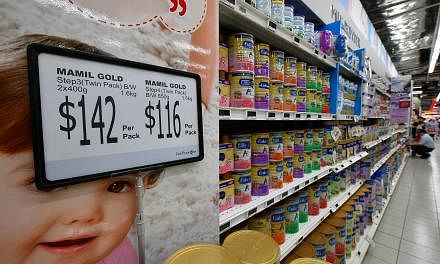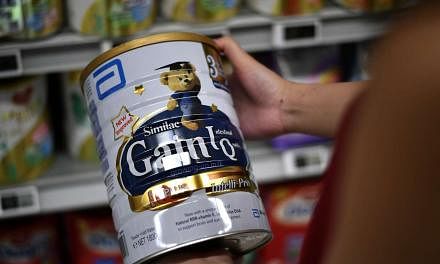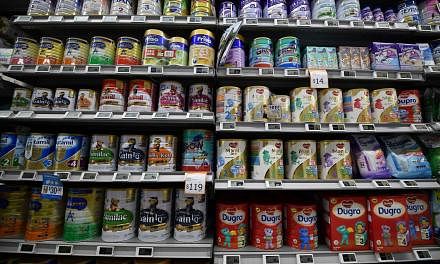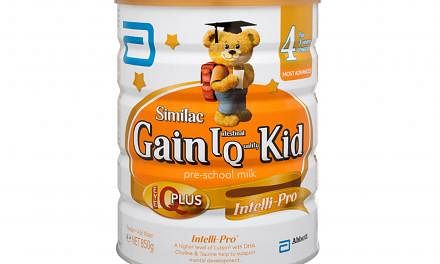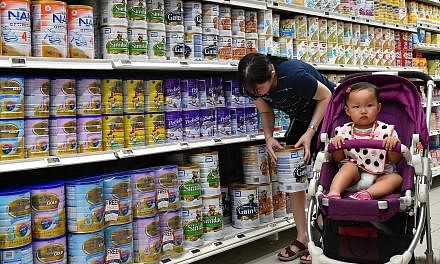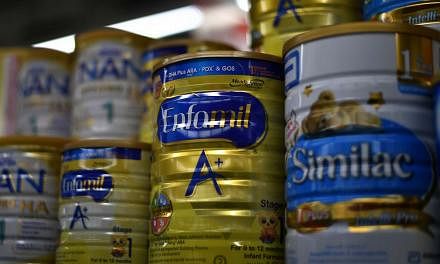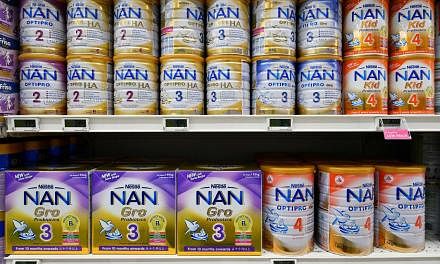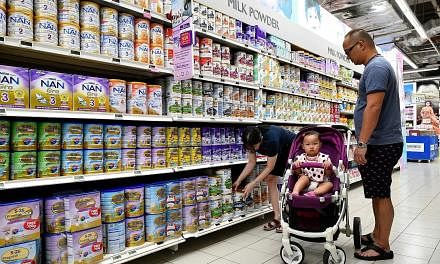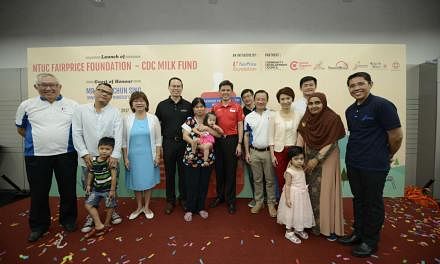SINGAPORE - Efforts to address the rising prices of infant formula milk have yielded some early positive results, Senior Minister of State for Trade and Industry and National Development Koh Poh Koon said in an interview on Thursday (Feb 8).
Dr Koh heads a task force formed in May last year to tackle the issue of baby milk prices which have more than doubled over the last decade to become among the highest in the world.
Between May and November 2017, the average prices for formula milk fell 4.8 per cent according to retail data from Nielsen. Prices of formula milk for infants aged below six months fell by 13 per cent, while those for infants aged from six to 12 months fell by 9 per cent.
This stemmed from an increase in consumer awareness and the availability of more affordable formula options, said Dr Koh.
Sales for lower-priced infant formula milk products costing an average of $35 or less per 900g increased by 36.5 per cent, he added.
In the same period - from May to November 2017 - total sales of formula milk decreased by about 17 per cent.
This indicates "hopefully that more mothers are breastfeeding", which is better for babies, said Dr Koh.
Surveys conducted by the Health Promotion Board showed that between July and September 2017 there was a 19 percentage point increase in the proportion of mothers who intended to switch from formula to whole cow's milk when their child turned one.
There was also a 22 percentage point increase in the proportion of mothers who were aware of the appropriate age to introduce solids to their child.
This proportion rose from 65 per cent to 74 per cent of respondents.
Food regulations will also be amended to prohibit health and certain nutrition claims by formula milk manufacturers, as well as texts and images that idealise the use of infant formula, Dr Koh said during the stocktake of the task force's efforts.
The Agri-Food and Veterinary Authority had previously said it was gathering public feedback on this proposal, which is aimed at curbing excessive marketing and encouraging greater price competition.
The task force intends to amend food regulations and ensure that infant formula is barred from making health and certain nutrition claims or using text and images that idealise its use, said Dr Koh.
Advertising that a product contains iron and calcium, or that calcium helps to build strong bones, for example, will be disallowed under the new rules, which will be implemented after industry consultation and the gazetting of regulations, following which brands will have a year to amend their labels.
"If it's not something that is unique to that particular formulation, we will forbid highlighting some of these upfront because it creates the impression that this particular tin of milk contains this and other products don't when in actual fact many of these basic ingredients of formula milk are already (in the content list)," said Dr Koh.
"Certainly there is useful information that can be displayed on the tin... but what we don't want is to have any egregious claims that hype up the product and make parents feel anxious," he added.
The code of ethics that guides the marketing practices of infant foods is in the final stages of review and restrictions on the advertising, marketing and promotion of formula milk will be tightened, said Dr Koh.
The task force was formed last May to implement measures such as tightening regulations on labelling and advertising, facilitating imports of more formula milk options, strengthening public education and encouraging good practices in hospitals.
Raffles Hospital announced last week that it will be the first private hospital in Singapore to say no to formula milk sponsorship agreements and do more to support breastfeeding.
The Straits Times also reported last week that the average price of a 900g tin of infant milk powder ticked up 59 cents to $56.65 last year, according to figures released by the Department of Statistics. The price rise is considerably less than the increase in previous years.
Dr Koh told ST then that six new brands with 25 product lines priced under $56.65 per 900g have been introduced since last May, but none made it to the Consumer Price Index's weighted basket of goods as they were "relatively new and do not yet account for significant market share".
Nielsen's figures are drawn from sales at all major retailers in Singapore and reflect "what you see in terms of price difference", while Singstat's figures are more historical, he explained on Thursday.
It will take time for consumer behaviour to shift, and for the market to react accordingly, Dr Koh said.
The task force has achieved its objectives and will monitor the impact of measures that have been introduced. If necessary, additional measures could be enforced in the future, he said.


